Poppycock Jabberwocky


The phrase "Colorless green ideas sleep furiously" was coined by Noam Chomsky as an example of nonsense. The individual words make sense, and are arranged according to proper grammar, yet the result is still nonsense. The inspiration for this attempt at creating verbal nonsense came from the idea of contradiction and irrelevant or immaterial characteristics (an idea cannot have a dimension of color, green or otherwise), both of which would be sure to make a phrase meaningless.
 Still, the human will to find meaning is strong; green ideas might be ideas associated with a Green party in politics, and colorless green ideas criticises some of them as uninspiring. For some, the human impulse to find meaning in what is actually random or nonsensical is what makes people find luck in coincidence, believe in omens and divination, or engage in conversation with a computer (see ELIZA effect).
Still, the human will to find meaning is strong; green ideas might be ideas associated with a Green party in politics, and colorless green ideas criticises some of them as uninspiring. For some, the human impulse to find meaning in what is actually random or nonsensical is what makes people find luck in coincidence, believe in omens and divination, or engage in conversation with a computer (see ELIZA effect).
The dreamlike language of James Joyce's "novel" Finnegans Wake sheds light on nonsense in a similar way; full of portmanteau words, it appears to be pregnant with multiple layers of meaning, but in many passages it is difficult to say whether any one person's interpretation of a text is the "intended" or "correct" one. There may in fact be no such interpretation.
"Jabberwocky" is a poem (of nonsense verse) found in Through the Looking-Glass, and What Alice Found There (1871) by Lewis Carroll. It is generally considered to be one of the greatest nonsense poems written in the English language. The word jabberwocky is also occasionally used as a synonym of nonsense.
 Jabberwocky
Jabberwocky- Lewis Carroll
- 1871
- 'Twas brillig, and the slithy toves
- Did gyre and gimble in the wabe;
- All mimsy were the borogoves,
- And the mome raths outgrabe.
 'Beware the Jabberwock, my son!
'Beware the Jabberwock, my son!- The jaws that bite, the claws that catch!
- Beware the Jubjub bird, and shun
- The frumious Bandersnatch!'
- He took his vorpal sword in hand:
- Long time the manxome foe he sought--
- So rested he by the Tumtum tree,
- And stood awhile in thought.
 And as in uffish thought he stood,
And as in uffish thought he stood,- The Jabberwock, with eyes of flame,
- Came whiffling through the tulgey wood,
- And burbled as it came!
- One, two! One, two! And through and through
- The vorpal blade went snicker-snack!
- He left it dead, and with its head
- He went galumphing back.
 'And hast thou slain the Jabberwock?
'And hast thou slain the Jabberwock?- Come to my arms, my beamish boy!
- O frabjous day! Callooh! Callay!'
- He chortled in his joy.
- 'Twas brillig, and the slithy toves
- Did gyre and gimble in the wabe;
- All mimsy were the borogoves,
- And the mome raths outgrabe.
 "Jabberwocky" is a poem (of nonsense verse) found in Through the Looking-Glass, and What Alice Found There (1871) by Lewis Carroll. It is generally considered to be one of the greatest nonsense poems written in the English language.
"Jabberwocky" is a poem (of nonsense verse) found in Through the Looking-Glass, and What Alice Found There (1871) by Lewis Carroll. It is generally considered to be one of the greatest nonsense poems written in the English language.Glossary
- Bandersnatch – A swift moving creature with snapping jaws. Capable of extending its neck. (From The Hunting of the Snark.)
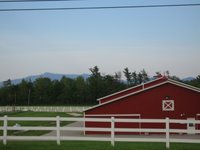 Borogove – A thin shabby-looking bird with its feathers sticking out all round, something like a live mop. Carroll emphasized in the introduction to The Hunting of the Snark that the initial syllable of borogove is pronounced as in borrow, rather than as in boring.
Borogove – A thin shabby-looking bird with its feathers sticking out all round, something like a live mop. Carroll emphasized in the introduction to The Hunting of the Snark that the initial syllable of borogove is pronounced as in borrow, rather than as in boring.
- Brillig – Four o'clock in the afternoon: the time when you begin broiling things for dinner. (According to Mischmasch, it is derived from the verb to bryl or broil.)
 Burbled – Possibly a mixture of "bleat", "murmur", and "warble". (according to Carroll in a letter [1]). (Burble is an actual word, circa 1303, meaning to form bubbles as in boiling water.)
Burbled – Possibly a mixture of "bleat", "murmur", and "warble". (according to Carroll in a letter [1]). (Burble is an actual word, circa 1303, meaning to form bubbles as in boiling water.)
- Chortled - Laugh in a breathy, gleeful way; cuckle (Definition from Oxford American Dictionary) A combination of "chuckle" and "snort."
 Frabjous - Delightful; joyous (Definition from Oxford American Dictionary, credited to Lewis Carroll)
Frabjous - Delightful; joyous (Definition from Oxford American Dictionary, credited to Lewis Carroll)
- Frumious – Combination of "fuming" and "furious." (From the Preface to The Hunting of the Snark.)
- Galumphing - Moving in a clumsy, ponderous, or noisy manner. Perhaps a blend of "gallop" and "triumph." (Definition from Oxford American Dictionary)
 Gimble – To make holes like a gimlet.
Gimble – To make holes like a gimlet.
- Gyre – To go round and round like a gyroscope, according to Humpty Dumpty. However, Carroll wrote in a letter that it meant to scratch like a dog. (Gyre is an actual word, circa 1566, meaning a circular or spiral motion or form; especially a giant circular oceanic surface current.)
- Jubjub – A desperate bird that lives in perpetual passion.
 (From The Hunting of the Snark.)
(From The Hunting of the Snark.)
- Manxome – Combination of "monstrous" and "fearsome"; possibly related to the Manx cat. [citation needed]
- Mimsy – Combination of "flimsy" and "miserable."
- Mome – Possibly short for "from home," meaning that the raths had lost their way.
 Outgrabe – Something between bellowing and whistling, with a kind of sneeze in the middle. Since the verse is in past tense, this is probably a preterite form derived from a strong verb such as "outgribe".
Outgrabe – Something between bellowing and whistling, with a kind of sneeze in the middle. Since the verse is in past tense, this is probably a preterite form derived from a strong verb such as "outgribe".- Rath – A sort of green pig. (See Origin and Structure for further details.)
- Slithy – Combination of "lithe" and "slimy."
 Toves – A combination of a badger, a lizard, and a corkscrew. They are very curious looking creatures which make their nests under sundials. They live on cheese.
Toves – A combination of a badger, a lizard, and a corkscrew. They are very curious looking creatures which make their nests under sundials. They live on cheese.
- Uffish – A state of mind when the voice is gruffish, the manner roughish, and the temper huffish. (according to Carroll in a letter).
- Wabe – The grass plot around a sundial. It is called a "wabe" because it goes a long way before it, and a long way behind it, and a long way beyond it on each side.

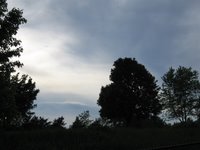
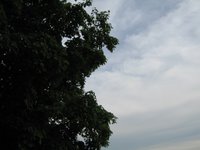
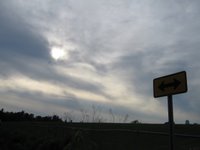

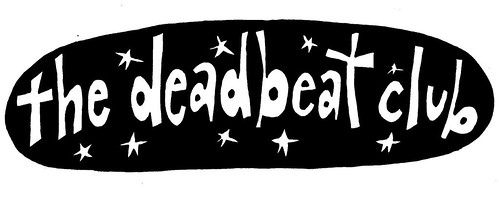
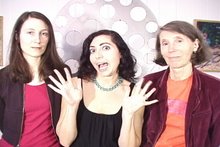
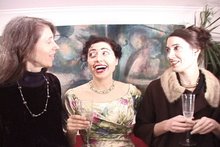
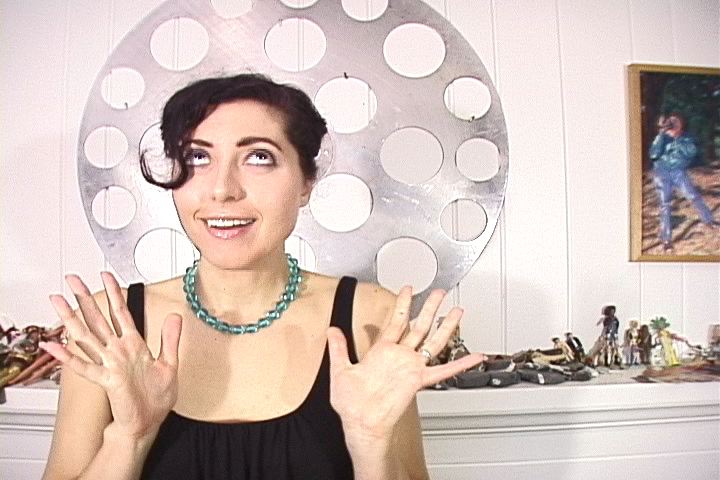
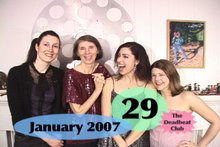
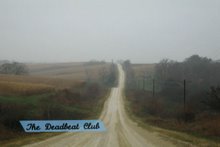
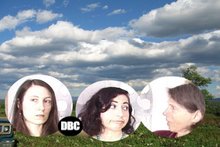




No comments:
Post a Comment